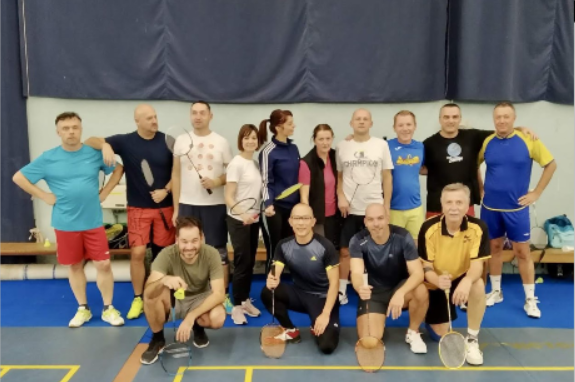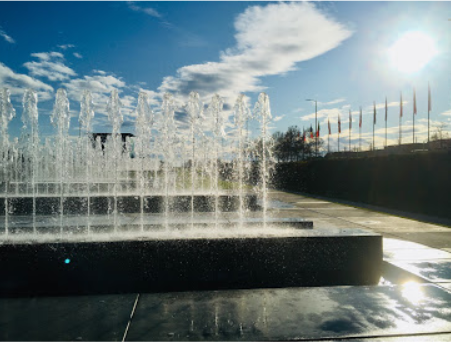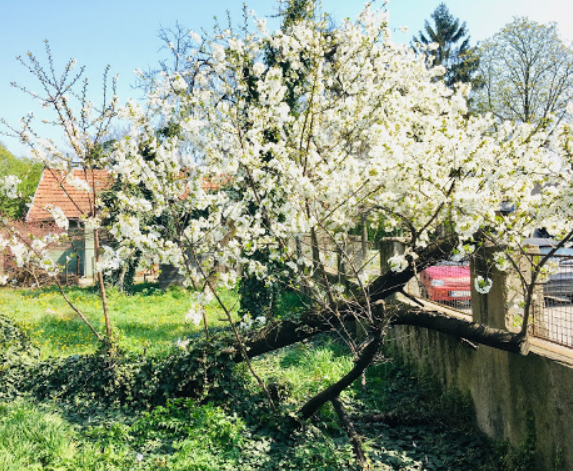April 7, 2020 - Do foreigners in Croatia feel more or less safe sitting out COVID-19 here than in their home country, and what are their experiences? A new series on TCN, with Katsuya Kasai from Japan in Zagreb as our 30th contributor.
Oxford University recently published some research on government responses to coronavirus which showed that Croatia currently has the strictest measures in the world. While inconvenient, this is a good thing in terms of reducing the spread of the virus, and I am certainly not alone in my admiration of the official Croatian handling of this crisis in recent weeks, both in terms of action and communication.
But what do other expats here think? And how does it compare with the response in their home country? Would they rather sit this one out here or there? In the first of a new series on TCN, we will be featuring expats from all over the world to see what their views are on life in corona Croatia rather than back home. So far we have heard from expats in Croatia from Romania, USA, Ireland, UK, Mexico, Argentina, Spain, Singapore, Holland, Canada, India, Hong Kong, Venezuela, Latvia, China, Honduras, Hungary, Moldova, South Korea and Germany. Next up, Katsuya Kasai from Japan in Zagreb.
If you would like to contribute to this series, full details are below. Now, over to Katsuya.
Firstly, how are you? Are you alone/with someone? Tell us a little about your situation and sanity levels.
My name is Katsuya Kasai from Japan. I am currently pursuing an Executive MBA at Zagreb School of Economics and Management during my career break while contemplating how to enjoy the rest of my life. Meanwhile, I have been taking some freelance jobs from foreign firms upon request. Although it deviates from my original plan, it must be good to make my life productive in this difficult period.
I live alone in Zagreb and am doing well by studying and working at home. Having said that, frankly speaking, I am not happy about the current situation because my favorite places, the National and University Library, cafes/restaurants, and badminton places, have been closed. All of which played a crucial role in making my life beautiful. Especially I miss my time playing badminton with my friends of BK Zagreb Maksimir and therefore my fingers crossed for partly lifting the restrictions in the near future.
When did you realise that corona was going to be a big issue?
Well, I think virtually everyone in the world downplayed the seriousness of the COVID-19 crisis and I have to admit that I was one of them until I realized the devastating status in Italy. While watching news of Wuhan, China, I merely believed that developed nations including Japan would somehow prevent and control it with limited damages. Needless to say, it was totally wrong. We are sadly facing an unprecedented global pandemic. I strongly believe it is necessary to review and revamp a dysfunctional WHO so as to diminish excessive political influence.
What is your impression of the way Croatia is dealing with the crisis? How safe do you feel?
In my view, Croatia has been doing great which can be confirmed from the relatively small number of cases. I initially expected that Croatia would be severely affected by the virus as Italy is located on the opposite shore. It is however likely that Croatian people have been properly controlling the issue at this point in time. I guess the government has wisely reflected lessons learned from other European countries (i.e. Italy, Spain, Germany, etc.) into its strategy. Thanks to the Croatian people's efforts, I feel safe as long as I follow the recommendations/instructions.
Now compare that to your home country and how they are handling it. What is Croatia doing better/worse?
Seemingly Japan was somehow controlling the virus based on a strategy targetting clusters but the number of cases has been gradually increasing day by day. The number is still small but, given the limited number of PCR tests, it seems there are a lot of infected people having no symptoms at this moment. Some experts said the reasons why Japan does not have as many cases and fatalities as other countries do would be Japan's three advantages: 1) a better medical services; 2) a national health insurance scheme; and 3) a high level of consciousness of hygiene. Nonetheless, however, once outbreaks occur, the collapse of medical service will surely be caused. The Japanese government, therefore, decided to proclaim a national emergency on April 6. Although it has a little legal binding power, I do hope Japanese people will also keep staying home until the situation is settled.
As mentioned above, Croatia is doing well when it comes to controlling the epidemic by restricting economic activities. So the next challenge for the government should be providing private firms/freelances with adequate financial assistance as forms of zero-interest loans and/or benefits. Otherwise, we will end up seeing a lot of bankruptcies and unemployment people.
What about official communications from the authorities, compared to your home country?
I would like to flag an issue on communications between the authorities and foreigners who do not speak Croatian language. Basically I depend on Total Croatia News (Hvala!) and sometimes watch TV news programs though I seldom get clear pictures. I hope that the authorities or media/ZSEM will announce important notices in English in a timely manner.
What's the one thing you wish you had taken with you into self-isolation.
The first thing that came into my mind was my iPhone. On the second thought, my laptop. And my final decision is to take delicious food with beer/wine? Wining-and-dining will certainly be a big player.
One thing you have learned about yourself, and one thing you have learned about others during this crisis.
I have realized that I like doing exercise. Although playing badminton is my passion, I usually feel unmotivated to do cardio exercise and muscle training. Very interestingly, I am now eager to do such exercises owing to the current stressful time. Actually I have been doing a little bit of muscle training at home every day.
About others, I have realized that I had misunderstood Croatian people, meaning I have learned from their behaviors during the crisis that Croatian are orderly people. I have witnessed that most people stick to instructions from the government. For instance, people keep enough social distance from each other everywhere and I have not seen any cafes/restaurants illegally working and so on. This was a bit of surprise because Croatian usually look like optimistic and easy-going people. Anyhow, this is a good finding. I appreciate it.
Thanks, Katsuya, stay safe and see you on the other side.
TCN is starting a new feature series on foreign experiences of sitting out COVID-19 here in Croatia compared to their home country. If you would like to contribute, the questions are below. Please also include a para about yourself and where you are from, and a link to your website if you would like. Please also send 3-4 photos minimum to This email address is being protected from spambots. You need JavaScript enabled to view it. Subject Corona Foreigner
If you would be interested to record a video version for our partners www.rplus.video please let us know in the email. Thanks and stay safe.
Foreigners Self-Isolating in Croatia: Do You Feel Safer Than in Your Home Country?
Firstly, how are you? Are you alone/with someone? Tell us a little about your situation and sanity levels.
What do you think about the economic measures the government is taking, are they helping your business? (PLEASE IGNORE IF THIS DOES NOT AFFECT YOU)
When did you realise that corona was going to be a big issue?
What is your impression of the way Croatia is dealing with the crisis? How safe do you feel?
Now compare that to your home country and how they are handling it. What is Croatia doing better/worse?
What about official communications from the authorities, compared to your home country?
What's the one thing you wish you had taken with you into self-isolation.
One thing you have learned about yourself, and one thing you have learned about others during this crisis.
TCN has recently become a partner in Robert Tomic Zuber's new R+ video channel, initially telling stories about corona experiences. You can see the first TCN contribution from this morning, my video from Jelsa talking about the realities of running a news portal in the corona era below. If you would like to also submit a video interview, please find Robert's guidelines below
VIDEO RECORDING GUIDE
The video footage should be recorded so that the cell phone is turned horizontally (landscape mode).
There are several rules for television and video news:- length is not a virtue- a picture speaks more than a thousand words
In short, this would mean that your story should not last more than 90 seconds and that everything you say in the report should be shown by video (for example, if you talk about empty streets, we should see those empty streets, etc.).
How to do it with your cell phone? First, use a selfie camera to record yourself telling your story for about a minute and a half. Ideally, it would be taken in the exterior, except in situations where you are reporting on things in the interior (quarantine, hospital, self-isolation, etc.). Also, when shooting, move freely, make sure everything is not static.
After you have recorded your report, you should capture footage that will tell your story with a picture, such as an earlier example with empty streets.
One of the basic rules of TV journalism is that the story is told in the same way as a journalist with his text. Therefore, we ask you for additional effort. Because we work in a very specific situation, sometimes you may not be able to capture footage for each sentence of the report. In this case, record the details on the streets: people walking, the main features of the city where you live, inscriptions on the windows related to the virus, etc.
The same rules apply if you are shooting a story from your apartment, self-isolation, quarantine. We also need you to capture footage that describes your story.
When shooting frames to cover your reports, it is important that you change the angle of the shot (in other words, shoot that empty street from several angles). Also, when shooting a detail, count at least five seconds before removing the camera to another detail.
The material should be about 5 minutes long (90 seconds of your report + frames to cover your story).
After recording everything, send us to Zagreb, preferably via WeTransfer to This email address is being protected from spambots. You need JavaScript enabled to view it.





